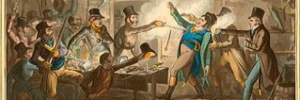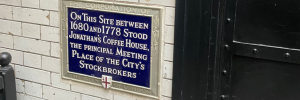In the aftermath of the Restoration of the Monarchy in the 1660s, the English East India Company introduced cheap calico and chintz cloth to Britain, which quickly gained popularity among the masses due to its affordability and colourfulness. The demand for these fabrics continued to grow, and the East India Company took notice, expanding its factories in Asia and increasing the importation of bulk cloth to Britain. As a result, the domestic woollen and linen textile producers competed directly with the EIC, and many weavers, spinners, dyers, shepherds, and farmers voiced their concerns and objections.
Calico and UK Politics
Parliament was petitioned, and angry mobs stormed EIC offices, leading to the calico question becoming one of the major issues of national politics between the 1680s and the 1730s. Despite the opposition, the EIC continued to expand its production and import of cloth, ultimately changing the British textile industry forever. In response to the growing threat, Parliament passed a stricter law in 1721 prohibiting the sale of almost all types of imported and domestic cotton. However, some types, such as thread, fustian, and raw cotton, were exempted from this ban.
Increase in imported cloth
This change had far-reaching consequences, with the market for domestic textiles shrinking as the demand for imported cloth increased. By 1736, the impact of the EIC’s production and import of cloth had even reached Leadenhall Market, where three wives of butchers were convicted for wearing printed calico gowns. This case illustrates how the arrival of new products and innovations can have significant social and economic consequences, and how resistance to change can arise from those who are threatened by it.
In 1736 three wives of butchers were convicted for wearing printed calico gowns. This case highlights how introducing new products and innovations can have significant social and economic consequences, and how resistance to change can arise from those threatened by it.




